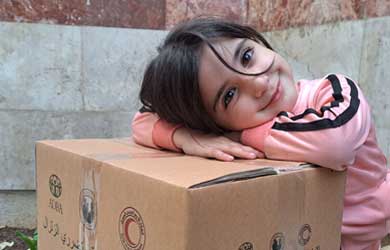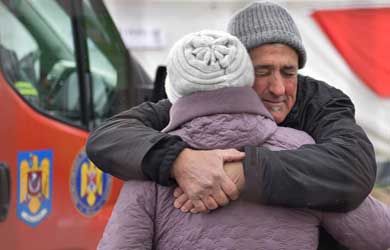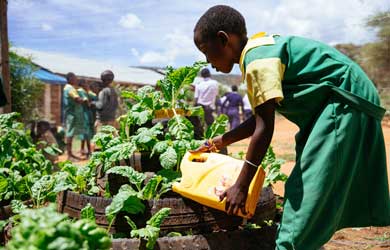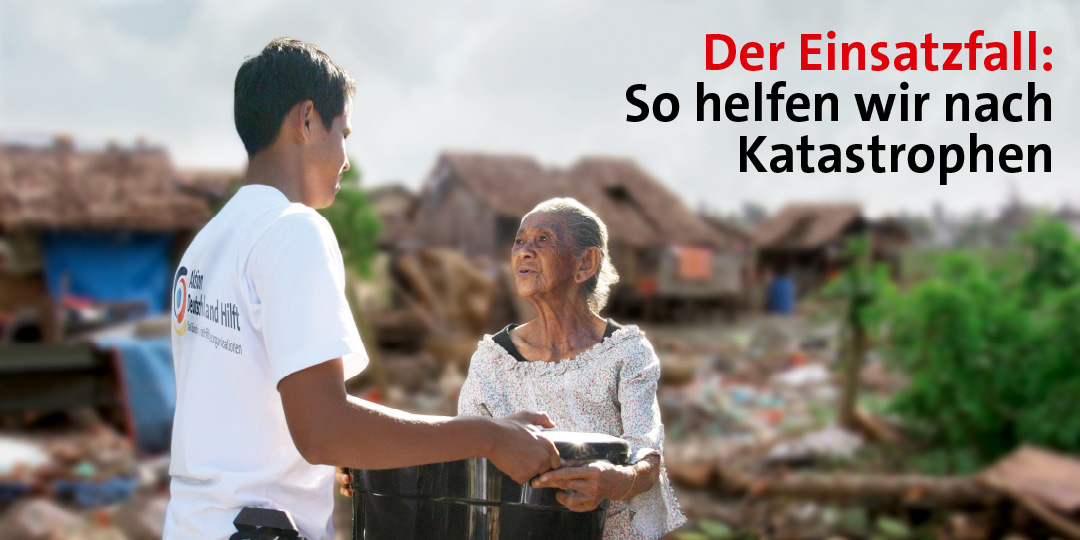Media and communication can improve crisis response beyond letting the wider world know what is happening. It can rapidly deliver information and guidance, provide a platform for people to share their problems and solutions and help galvanize action to meet the needs of people affected. In short, used properly it can reduce suffering and save lives.This side-event, “The Role of Media in Humanitarian Crises”, will give attendees a greater understanding of how media and communication can improve humanitarian responses, and how practitioners from both sectors can work better together.Specifically, the session will explore:
- Raising public awareness of humanitarian crises: How should the news media report humanitarian emergencies – and how often? What other forms of media can be used to increase awareness and understanding of emergencies and how they happened? What does the general public want to know? To what extent does media coverage influence community engagement and policy?
- Mobilising private donations: Recognizing the independent role of the media, how can media corporations support the mobilization of private donations during emergencies? What’s good practice?
- Providing ‘lifeline’ communication to people affected by crisis: How can media and communication help people survive and cope with emergencies? Is it really a form of aid? What’s the evidence? We will explore how various forms of media including public service announcements and documentary films, as well as partnerships between organisations have helped meet the needs of people affected by humanitarian crises.
As the work of BBC Media Action, Show of Force and the Emergency Appeals Alliance demonstrates how media works in tandem with aid agencies. From awareness-raising to bringing violations of international human rights to light, we will explore the growing need for media tools that empower individuals to hold the most powerful to account.
This conversation will then address the unprecedented funding challenges facing humanitarian responders and how we can increase donations from individuals by working more effectively with the private sector, and media corporations around the globe. The panel will look at prominent humanitarian joint appeals and innovative partnerships with national media and businesses to multiply the potential for resource mobilisation for humanitarian crises.
Attendees will leave the event with an understanding of the multiple roles of media in humanitarian crisis and how to enhance opportunities for partnerships to benefit affected communities. Our panelists will outline three calls to action for the audience:
- Communicate with people affected by crisis as a form of humanitarian aid: People affected must be able to express their needs and receive information that will help them survive and cope with the emergency.
- Invite all actors to the table in humanitarian crises fundraising: Aid organizations must act together to fill the global funding gap.
- Be more creative with coverage of emergencies beyond typical crisis reporting: Programming across platforms can address humanitarian emergencies in more depth and provide the background and accountability that audiences want.
Panellists
Caroline Nursey OBE has been the Executive Director of BBC Media Action – the BBC’s international charity – since March 2009. For the previous eight years she held a number of Director-level roles at Oxfam including regional director based in Nairobi during the scale up for Darfur and regional director in West Africa responding to food crisis in the Sahel. She worked in Khartoum for two years managing the Oxfam programme in Sudan including the humanitarian response in Darfur. While there she served on the UN standing committee. Caroline is Vice Chair of BOND, the umbrella body of UK based NGOs working internationally, and a board member of Communication with Disaster Affected Communities (CDAC) of which Media Action is a founding member.
Joshua Bennett is Show of Force’s Executive Vice President, the Executive Producer of Humanity on the Move and the Producer of the ground-breaking, transmedia series’ Half the Sky: Turning Oppression Into Opportunity for Women Worldwide, the ground-breaking documentary series inspired by Pulitzer-prize winners Nicholas D. Kristof and Sheryl WuDunn’s bestselling book of the same name. He was the series producer on the follow up series A Path Appears and oversaw the creation and execution of the Half the Sky Movement Engagement Initiative supported by USAID in India and Kenya. Joshua Bennett has produced shoots in over 35 countries and on all seven continents. He has produced programming for PBS, HBO, MTV, Discovery, A&E and the Sundance Channel, as well as music videos, commercials, independent shorts, experimental works and corporate, new media and viral media campaigns.
Hanna Stjärne is CEO of Swedish National Television (SVT). She has previously worked as managing director, editor and publisher of the UNT group, program director for all range of Swedish Radio, domestic Head of Ekot and foreign correspondent in Norway.
Moderator
Nicolas Moyer is Executive Director of Humanitarian Coalition. He joined the newly formed Humanitarian Coalition (HC) in December 2007 with the mandate to establish a Canadian joint appeal mechanism for international humanitarian disasters. He has guided the formation of the HC as it has evolved from a pilot to become an organization of national significance and uniting many of Canada’s most experienced humanitarian agencies. He has overseen the development of humanitarian fundraising and communications for the HC, program accountability measures, a governance structure, increased membership and private sector partnerships, and all other facets of the organization’s growth. He was also instrumental in the creation in 2014 of the Canadian Humanitarian Assistance Fund (CHAF), a pooled NGO fund jointly funded by the Canadian federal government to respond rapidly to smaller rapid-onset disasters.
Previous to the HC, Nicolas Moyer worked in Ethiopia for 3 years, where he edited and wrote for a national English newspaper, founded network of NGOs and worked on a number of domestic and international NGO programs. He holds a BA in economics, a Masters in international relations and a Masters in business administration (MBA).
+++ Spendenaufruf +++
Aktion Deutschland Hilft, Bündnis der Hilfsorganisationen,
bittet dringend um Spenden für die Nothilfe weltweit
Stichwort: Nothilfe weltweit
IBAN DE62 3702 0500 0000 1020 30, BIC: BFSWDE33XXX
Jetzt online spenden!
© Bündnis deutscher Hilfsorganisationen: Spenden & helfen
Schirmherr & Kuratoriumsvorsitzende

Bundespräsident a. D. Horst Köhler & Außenministerin Annalena Baerbock: Erfahren Sie mehr!
Spendenkonto Nothilfe weltweit
IBAN: DE62 3702 0500 0000 1020 30
Stichwort: Nothilfe weltweit
Bildergalerien
Der Einsatzfall: So helfen wir nach Katastrophen
Geschichte des Bündnisses: Unsere Hilfseinsätze
Infografiken
Jeder Beitrag zählt: Der Weg Ihrer Spende
Multimedia
Podcast: Geschichten aus unserem Bündnis
Podcast: So funktioniert Aktion Deutschland Hilft
Reportage: 20 Jahre Aktion Deutschland Hilft
Weitere Informationen
Transparenz & Kontrolle: Warum Sie uns vertrauen können
Stiftung Deutschland Hilft: Satzung









